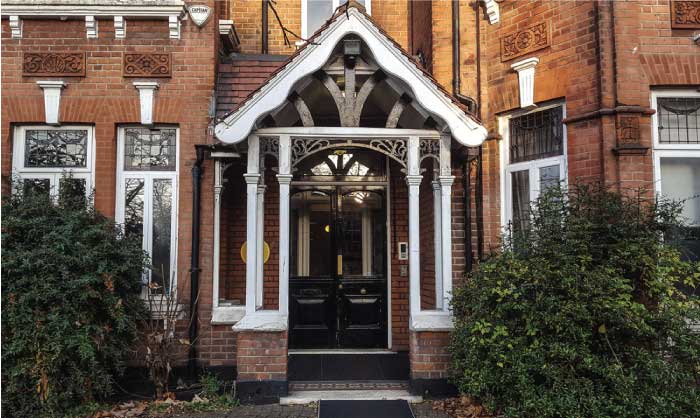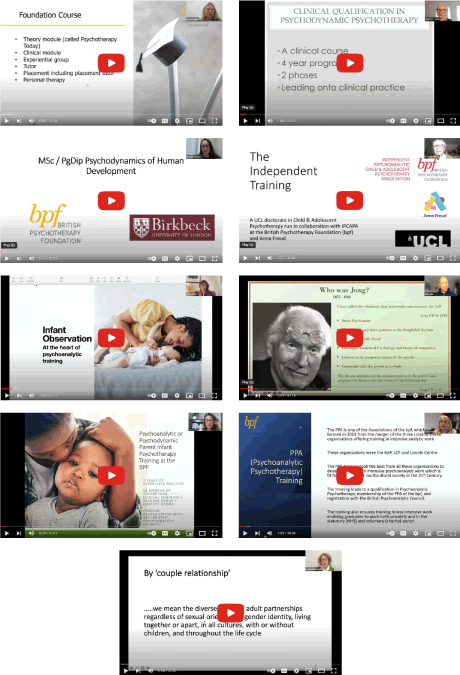
How to Become a Psychotherapist in the UK
Working as a psychotherapist or counsellor is one of the most rewarding, supportive and flexible careers out there, but the journey to becoming one can often seem convoluted. In this article, we’ll break down all the steps you need to take to qualify as a psychotherapist or counsellor in the UK.
Step 1. Research different types of psychotherapy/counselling
Before you train, it helps to have a general idea of which therapeutic approaches you like and value.
There is a wide variety to choose from (and the following list is by no means exhaustive), but some of the main approaches to research include: psychoanalytic, psychodynamic, Jungian, CBT, existential, humanistic, and integrative.
The In a Nutshell series of books is a great place to start, as it provides clear explanations of some of the main theoretical modalities.
Another way to research is to start therapy yourself in a modality you are curious about, to see whether the approach you have chosen works for you. Receiving therapy from a trainee can help you manage costs (sessions can cost around £20). It is crucial that you believe in the benefits of the type of therapy you will go on to study.
Download Free Reading List:
An introduction to Psychoanalytic & Jungian Theory
This resource will signpost you to some introductory and foundational texts to provide an understanding of psychoanalytic, psychodynamic & Jungian thinking and theory.
We’re proud to partner with:






Step 2. Study a foundation course/introductory training
To become a practising psychotherapist or counsellor in the UK, you need to complete a qualifying training accredited by a professional association (such as the BACP, UKCP, BPC, or ACP). These taught courses combine clinical experience (working with clients under supervision) with psychotherapy theory. In general, psychotherapy trainings take four or more years to complete.
To gain entry onto a qualifying course, you will usually need to have completed a foundation or introductory course beforehand and gained relevant experience in a listening role.
Foundation courses give you a comprehensive introduction to psychotherapy theory and practice in the modality of your choice. Most courses also contain practical exercises, where you role-play as a psychotherapist and receive feedback from peers, as well as an experiential group. Experiential groups are directionless—without a set agenda—and the main purpose of participating is to learn more about group dynamics and how you act within a group. It is remarkable how much can happen when a group of people meets regularly and is simply invited to sit together.
Something important to note is that foundation courses do not always include a clinical experience element (which is essential for acceptance onto a qualifying training). It’s therefore a good idea to find relevant experience outside your studies. This could be volunteering in a befriending role or working on a crisis line like Samaritans. The very best form of experience you can get is in a supervised clinical setting.
On the bpf Foundation Course, we have addressed the lack of clinical experience in many introductory courses by including a Clinical Module, during which our Clinical Placement Tutor helps students find a supervised clinical placement—meaning trainees get the essential experience from the very beginning. This part-time course can be studied entirely online or at the bpf House in London (Kilburn) on Saturday study days.
Step 3. Apply to a qualifying training
After completing your introductory psychotherapy course, you can apply to a qualifying training. These courses require a lot of commitment, but many describe them as completely transformative. They are often part-time, so you can work alongside your studies.
It’s best to choose a course accredited by one of the main professional psychotherapy organisations (BACP, UKCP, BPC, ACP). Without this seal of approval, you have no reliable way of gauging the quality of the training, and your employability may be affected later on.

Your roughly four-year training will involve lectures, seminars, experiential groups, research, essays, clinical work with clients, and attending regular therapy yourself. You’ll likely form a strong bond with your fellow trainees, and by the end of it all, you will be ready to go out into the world as a qualified psychotherapist.
Step 4. Join a professional association
The final step to becoming a qualified psychotherapist in the UK is joining a professional association and/or members’ body. If you have studied a course accredited by one of these associations (e.g., the BPC), you will be eligible to apply to that association.
To join certain professional associations, such as the BPC or UKCP, you will need to be part of a members’ body (like us, the British Psychotherapy Foundation). You can think of your members’ body as a guild or club, offering opportunities for continuous professional development, career advice, ethics support, supervision, and networking with other psychotherapists. Through your guild, you’ll also be connected to the wider professional association.
What about funding my studies?
Training as a psychotherapist can be expensive, but there are options to help you pay for your studies.
Taking out a postgraduate or professional development loan is an option for some. Sometimes training providers will allow payment in instalments, helping you spread the cost, and certain courses are substantially subsidised by government funding.
Another option is asking your employer to sponsor your training. If you already work in a relevant field, such as nursing or social work, your employer may have a budget set aside to support further study.
Conclusion
We hope this article has demystified the path towards becoming a psychotherapist or counsellor in the UK. If you follow these steps, you’ll be able to join an incredibly rewarding profession. We also recommend reading our other blog: Key Considerations When Choosing a Psychotherapy Training Course.
If you’d like to learn more about how the bpf can support you on your journey to qualification, take a look at our course listings (particularly our Foundation Course) or drop us an email at [email protected].
You can also subscribe to the bpf newsletter for the latest psychotherapy advice, course information, events, and networking opportunities.
Simply, it exceeded all my expectations, and sufficiently impressed and enthused me to consider a future career in psychotherapy. On a personal level it has changed me; something that has been accelerated by beginning my own personal analysis. I find myself thinking about non-verbal communications much more as a consequence of having attended the course.”
bpf Student
The course has allowed me to dip my toe into the analytic world and provided a broad overview of the analytic landscape. It has enhanced my understanding of psychoanalytic ideas and I’ve particularly benefited from speaking to experienced clinicians. The discussion groups in particular have been useful to clarify my own ideas and get a different perspective from others. Overall, it has helped me to determine if I would like to pursue work in this field.”
bpf Student
The standard of teaching was exceptional, and the course structure fostered an environment conducive to our growth and development as clinicians. Regular weekly supervision sessions allowed us to strengthen our peer relationships while deepening our learning.
bpf Student
Our Vision & Mission
The British Psychotherapy Foundation is a registered UK charity (Charity No. 1150806) based in London and Newcastle upon Tyne.
Accredited by the British Psychoanalytic Council (BPC) and the Association of Child Psychotherapists (ACP), the bpf provides training in psychotherapy for every level of learner.
We’re committed to:
- Offering rigorous psychotherapy training, accredited by the BPC and ACP
- Educating the public about psychoanalytic/Jungian theory and practice
- Working to improve diversity within the profession


Why Train with Us?
- Accredited & Respected: Our programmes are accredited by the British Psychoanalytic Council (BPC) and the Association of Child Psychotherapists (ACP). Our programmes are recognised across the UK and internationally.
- Expert Faculty: Learn from experienced clinicians, researchers, and educators.
- Supportive Community: We pride ourselves upon the extensive support and guidance we offer to every bpf student. Students also have the unique opportunity to network with current professionals, receive career advice, get involved in the latest research, and attend our exciting roster of member-only events.
- Investors in Diversity: We hold the ‘Investors in Diversity – silver award’ from the National Centre for Diversity (NCD). This highlights our charity’s commitment to Fairness, Respect, Equality, Diversity, Inclusion and Engagement.
Register to watch Open Day presentations
Register below to attend our Virtual Open Day and watch presentations about our psychotherapy courses at your leisure.
